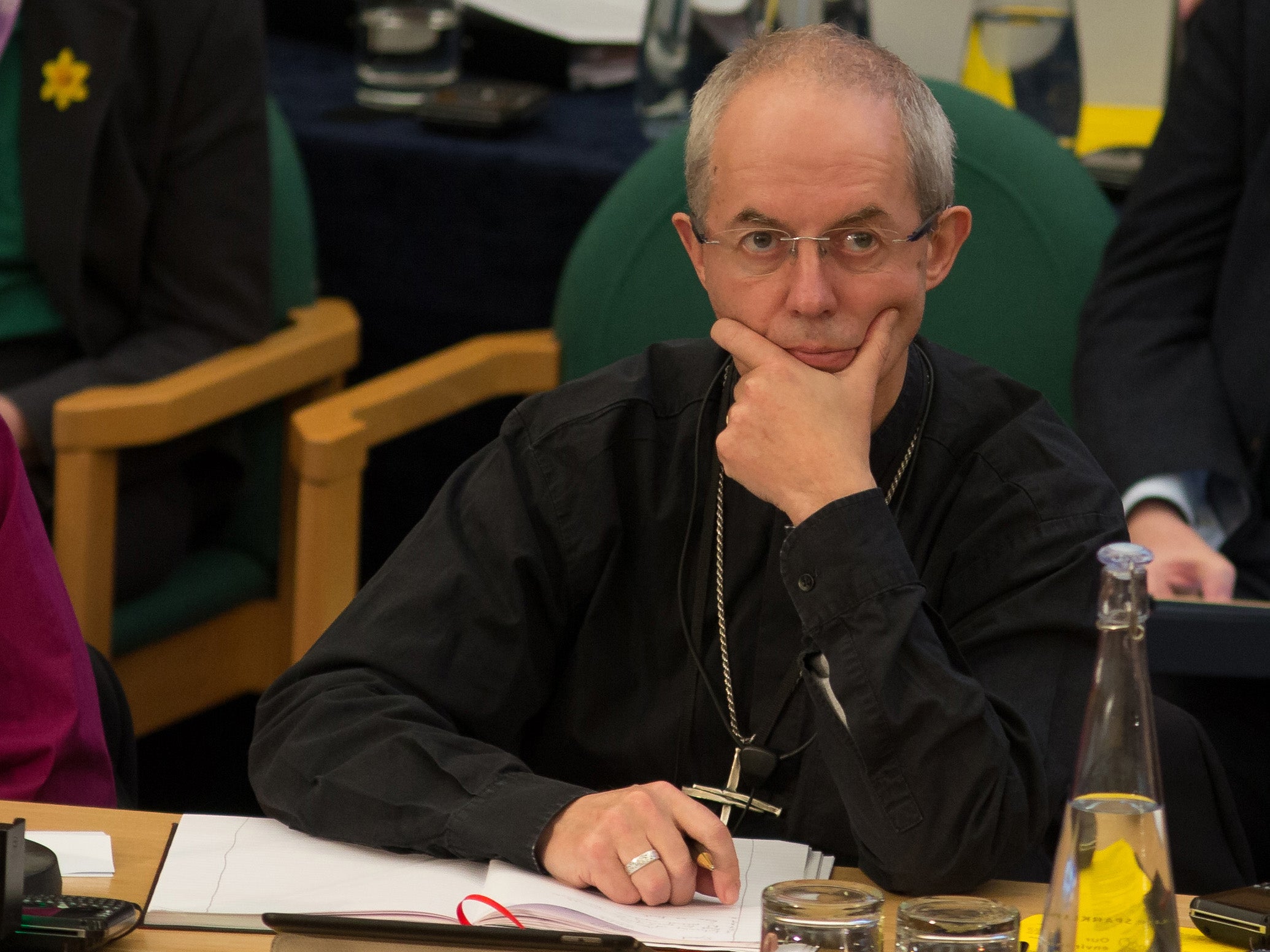Archbishop of Canterbury attacks grammar schools as ‘contrary to the common good’
The Most Rev Justin Welby argued that the system ‘will ultimately fail’

Your support helps us to tell the story
From reproductive rights to climate change to Big Tech, The Independent is on the ground when the story is developing. Whether it's investigating the financials of Elon Musk's pro-Trump PAC or producing our latest documentary, 'The A Word', which shines a light on the American women fighting for reproductive rights, we know how important it is to parse out the facts from the messaging.
At such a critical moment in US history, we need reporters on the ground. Your donation allows us to keep sending journalists to speak to both sides of the story.
The Independent is trusted by Americans across the entire political spectrum. And unlike many other quality news outlets, we choose not to lock Americans out of our reporting and analysis with paywalls. We believe quality journalism should be available to everyone, paid for by those who can afford it.
Your support makes all the difference.The Archbishop of Canterbury has attacked a Conservative proposal to expand grammar schools, arguing they are fundamentally “contrary to the notion of the common good”.
The Most Rev Justin Welby, who was leading a debate on education in the House of Lords on Friday, said: “The academic selective approach to education, which prioritises separation as a necessary precondition for the nurture of excellence, makes a statement about the purpose of education that is contrary to the notion of the common good.
“An approach that neglects those of lesser ability or, because of a misguided notion of ‘levelling out’ does not give the fullest opportunity to those of highest ability … will ultimately fail.”
The Archbishop continued to praise the improvements of comprehensive schools, especially their inclusion of those with disabilities.
He acknowledged that despite the fact “children of privilege continue to inherit privilege”, the inclusion of students with more diverse needs was a “welcome step towards an education that seeks the fullest and most abundant possible life for each human being, regardless of their ability”.
In 2016, the Conservative manifesto promised to introduce a “new generation” of grammar schools, reversing the 1997 Labour ban. However, Theresa May was forced to abandon her plans after failing to gain a majority, instead saying the Government would “look at all options”.
The Archbishop, who is known for being outspoken on issues of social progression, urged ministers who still backed grammar schools not to “waste our time rummaging” in the past for the “solutions of tomorrow”.
Conservative Andrew Bridgen told the Daily Mail: “[The Archbishop] is obviously entitled to his own views, but the evidence is that grammar schools are a great way for underprivileged children to escape poverty.
“It is well known that [grammar schools] provide social mobility for the underprivileged. he added.
The Archbishop also told the House of Lords that schools are faced with one of the “greatest challenges” as the country is entering a “fourth digital revolution”.
“We need an educational system that can bear the weight of the changes that are coming,” he said.
Join our commenting forum
Join thought-provoking conversations, follow other Independent readers and see their replies
Comments